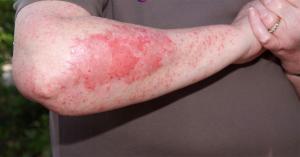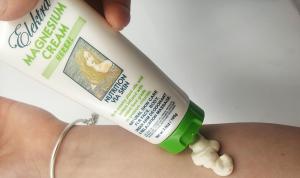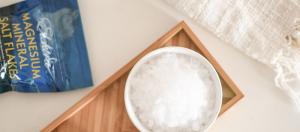
Calming Down Eczema, Psoriasis and Dermatitis
Is your gut microbiome and sluggish digestion giving you itchy skin? Are you exposed to many detergents, alcohols and chemicals? Do you have excessive stress?
The health of the skin is a window to what is happening on the inside of the body, and is just as dependent on gut health, as it is on the care of skin. Optimal results occur when you can work both ends towards the middle.
DETERGENTS, ALCOHOLS AND CHEMICALS
The problem with many toiletries and personal care products is the veracity of their detergents and chemical ingredients. People can get terribly overloaded with repeated use – as many nurses and surgeons that are always scrubbing their hands can testify! They can strip out the protective oils in the skin barrier, thereby exposing it to the outside environment and potential microbial infection. To make matters worse, the chemical detergents and alcohols can then have access to the interior of the body.
If the skin oils are depleted we can lose too much moisture and the microbiome of the skin becomes disturbed, with the skin feeling exposed, extra dry and itchy. The skin feels itchy when the fatty insulation of the barrier is reduced and nerves are more exposed. If pathogens enter the gaps of the compromised epidermis, the immune system can be triggered, resulting in raised inflamed rashes or welts.
POOR GUT HEALTH AND ACIDOSIS
Waste toxins produced by internal cellular metabolism can also cause barrier disruption due to acidosis. This commonly happens if you have a metabolic disorder whereby the clearance of wastes is on the sluggish side. It can overload the liver, pushing more wastes into the lymph system, which excretes via skin, causing irritation and inflammation. If metabolism, detoxification, and pH balancing doesn’t stabilise, it can cause an auto-immune problem.
Acidosis from gut disorders, detox and waste management issues affects the whole body. We need to keep our internal plasma and tissue cells in the alkaline range (about 7.35-7.45 pH) for optimal electrical and metabolic activity, detoxification, nerve signalling, cardiovascular function and overall health. This then also supports the pH environment of the skin, which happens to be (conversely) slightly acidic (ie. a bit under 5pH).
The loss of collagen in the body due to excessive metabolic acids and free radicals causes thinning and weakening of the whole integumentary system. This means that skin, hair, nails, bones and teeth can deteriorate, and skin can feel more sensitive. The thinner the skin the less of a reservoir to hold oils for skin barrier protection. As lipids (oils) are insulating and protective of nerve endings, the nerves of the dermis (under the epidermis) can become hypersensitive to stimuli if the skin thins too much.
People with hypothyroidism, diabetes, renal disorders or polycystic ovary syndrome tend to have issues with detoxification and pH stabilisation. An acidic gut will attract more pathogens and make the environment for beneficial bacteria more hostile.
A natural diet of mainly alkalising foods helps to counteract acidity. Choose organic high quality fresh food wherever possible, as opposed to overly processed packaged foods with chemical additives. Sugar, simple carbohydrate and alcohol produce more acidic metabolic wastes.
Alkaline foods, structured water, and sodium bicarbonate are a great help to buffer the excess acids. If you have trouble digesting food due to lack of stomach acid and enzymes, SIBO and GERD may result, producing waste fermentation acids further along the digestive tract. Natural digestive aids, such as betaine hydrochloride, can help with stomach digestion, preventing the sluggish passage of food through the digestive system with the associated bloating and reflux.
Faecal waste passage can also slow down in the larger intestine, contributing to constipation, diverticulitis, IBS (Irritable Bowel Syndrome) or Crohn’s disease. Any of these conditions can produce skin disorders, as the skin is another organ of waste excretion.
The epidermal microbiome deteriorates as a result of and after the internal gut microbiome becomes disrupted, which is why our digestive system function is so crucial in the healing of skin disorders.
STRESS TRIGGERS INFLAMMATION
Sufferers of skin disorders notice that inflammation and itchy rashes seem to flare up commonly after excessive stress or sleep deprivation. Stress overload not only depletes magnesium stores, but low magnesium also means that too much adrenalin can be released, creating extra anxiety and a negative feedback loop.
This means that the lower the magnesium the less we can cope with stress and the more hypersensitive we get. In a stressed state the energy is diverted to muscles and away from digestion, and thus contributes to sluggish metabolism and building up of acidic wastes, causing free radical damage.
Adrenalin also causes dehydration and increases acidity, thereby further exacerbating skin disorders and feelings of restlessness. However, magnesium and water have an alkalising effect, rehydrating cells and dampening down the adrenalin. This alleviates stress, supports metabolism, is anti-inflammatory, and helps to restore pH balance.
CALMING DOWN STRESSED SKIN AND STOPPING THE IRRITATING ITCH
Magnesium bathing soothes stressed skin by helping the body detox transdermally. For those with very acute skin conditions it is recommended to bathe in warm water with magnesium chloride, which is hydrating and gentle for skin. A word of caution with Epson salt (magnesium sulphate) bathing, as it may cause dry itchy skin from the sulphate component removing too many protective oils.
To shield the barrier and nerve sensitivity we need enough lipids from quality plant oils and butters which not only act as insulators, but also help to hold in moisture and keep skin looking younger. When magnesium is part of an oil-water matrix (as in Elektra Magnesium Creams) the skin can recover with better mitochondrial metabolism to regenerate collagen and elastin, which protect the skin barrier and its microbiome. More information is at www.elektramagnesium.com.au
By Sandy Sanderson © 2023
Sandy Sanderson
Elektra Life Pty Ltd
+61 7 5502 0865
email us here
Unplug from the stress of modern life
EIN Presswire does not exercise editorial control over third-party content provided, uploaded, published, or distributed by users of EIN Presswire. We are a distributor, not a publisher, of 3rd party content. Such content may contain the views, opinions, statements, offers, and other material of the respective users, suppliers, participants, or authors.




